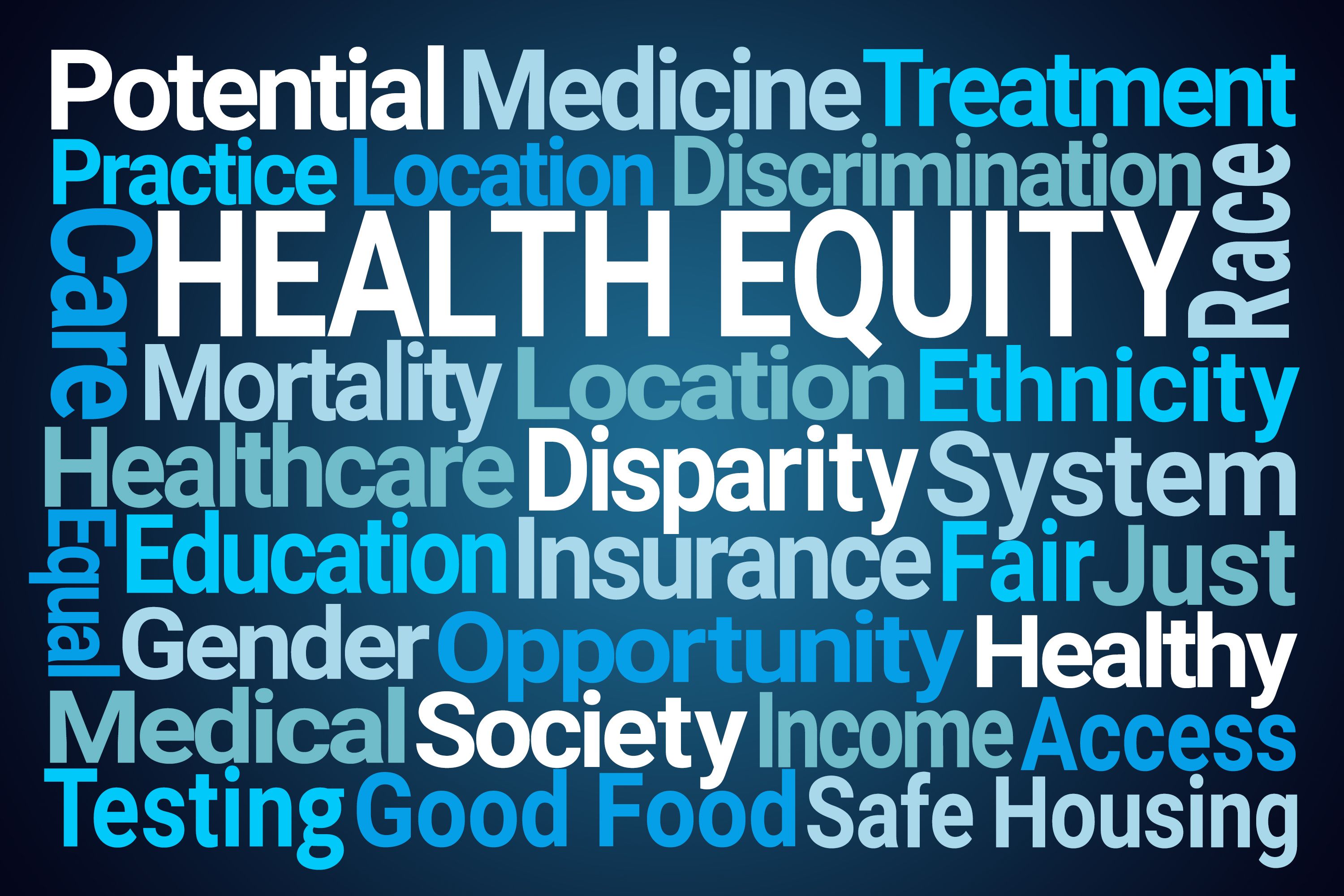- Center on Health Equity & Access
- Clinical
- Health Care Cost
- Health Care Delivery
- Insurance
- Policy
- Technology
- Value-Based Care
Health System Policy Failures Drive Cervical Cancer Disparities in Rural South
The Southern Rural Black Women’s Initiative for Economic and Social Justice works to overcome race, class, cultural, religious, and gender barriers that Black women and young women face in the rural South, specifically the Mississippi Delta and the Black Belt regions of Alabama and Georgia.
From a region in the rural South already beset by extreme poverty and high rates of poor health outcomes—such as cardiovascular disease, hypertension, obesity, hypercholesterolemia, and diabetes1-3—comes a new report detailing cervical cancer prevention failures and care shortcomings prevalent among its Black women. The report underscores that cervical cancer is largely preventable through vaccination and routine screenings, yet systemic barriers continue to deny Black women and young women in rural communities these lifesaving interventions.4
In No Excuse: Inadequate Cervical Cancer Prevention and Care for Black Women in the Mississippi Delta, the Southern Rural Black Women’s Initiative for Economic and Social Justice (SRBWI) and Human Rights Watch explore how access to comprehensive reproductive health care—encompassing education, preventive services, and adequate gynecological care—could dramatically reduce cervical cancer incidence and mortality among Black women in the Mississippi Delta.
Between September 2023 and April 2024, 49 experts—community members, medical providers, academics, public officials, and representatives from nongovernmental health, reproductive rights, and justice organizations—along with 159 Black women, aged 19 to 81 years, were interviewed from Bolivar, Humphreys, and Washington counties of Mississippi. Their goal was to uncover the structural drivers of the disproportionately high cervical cancer rate and mortality rate among Black women in the Mississippi Delta region.5
Oleta Garrett Fitzgerald | Image Credit: © Southern Rural Black Women’s Initiative for Economic and Social Justice

“We are hopeful that this report will help to advance knowledge and access that will save people’s lives. We have people who are dying who don’t need to be dying, simply because they are not aware that there is research and science that provide a vaccine that could prevent them from getting sick and could prevent their children, their young girls, from getting sick,” Oleta Garrett Fitzgerald told The American Journal of Managed Care®. “Our message is, let’s stop this. Let’s provide the information. Let’s provide the service. Let’s continue to push for health care access and health care professionals who are accessible in these regions.”
Fitzgerald, regional administrator for the SRBWI and southern regional director for the Children’s Defense Fund, reviewed the completed report and emphasized that addressing these disparities requires policy change at multiple levels.
A Consequence of Policy Failures
Compared with their White counterparts, Black women overall are dying at disproportionally higher rates from cervical cancer, anywhere from 65% to 75% higher.5-7 Mississippi has the highest cervical cancer mortality rate in the US, with its Black women approximately 1.5 times more likely to die from this cancer and more than 4 times as likely to die from pregnancy-related complications compared with White women.5 However, the disparity extends beyond reproductive health, as Black residents of Mississippi are more than twice as likely (32% vs 13%) to live in poverty vs White residents.4
Systemic policy failures at the local, state, and federal levels perpetuated, and continue to perpetuate, these inequities.4,8 Decades of underfunding for public health initiatives, the refusal to expand Medicaid under the Affordable Care Act—along with Alabama, Florida, Georgia, Kansas, South Carolina, Tennessee, Texas, Wisconsin, and Wyoming9—and restrictions on reproductive health services, including a near-total ban on abortion services, have left many Black women in the Mississippi Delta without access to critical preventive care.4 The consequences are dire: lack of affordable screenings and follow-up treatment means that cervical cancer is often diagnosed at later stages, with fatal outcomes more likely. Limited access to human papillomavirus (HPV) vaccination—due to misinformation, logistical barriers, and financial constraints—further exacerbates disparities.
People are dying when they shouldn’t be dying, Fitzgerald explained. Hospitals and medical facilities are closing, when after the COVID-19 pandemic there should have been greater interest in expanding Medicaid coverage and services. Instead, the state’s strict eligibility requirements often mean many low-income individuals go without coverage, because they make too much to qualify for Medicaid but too little to be able to afford private insurance.10
“Unfortunately, we continue to wrangle with this issue of health care access as if it is something less than a human right or that you are on your own, or that it is some kind of a welfare program that’s growing exponentially in areas where all of the other indices point to increased health care deserts,” she said. “Expanding Medicaid remains a major issue as it relates to cervical cancer outreach.”
Mississippi has the highest cervical cancer mortality rate in the US, with its Black women approximately 1.5 times more likely to die from this cancer and more than 4 times as likely to die from pregnancy-related complications compared with White women. | Image Credit: © Robert Wilson-stock.adobe.com

Advocates and lobbyists continue to push for Medicaid expansion in Mississippi, Alabama, and Georgia. In Mississippi alone, the House and Senate have filed 2 dummy bills to expand Medicaid coverage.10 Passed by their respective Medicaid committees in January, the bills do not relate directly to Medicaid but put forth the necessary code sections, keeping them open, so they can be worked on later and still meet legislative deadlines. The bills’ proponents want to see how the new administration will approach expanding Medicaid in Mississippi first.
Because Medicaid coverage was not expanded in Mississippi, the state lost out on an estimated $14.5 billion in federal funding between 2013 and 2022 that would have helped to extend health care coverage to many low-income residents.4
Distrust, a Consequence of Structural Inequities
Within Mississippi and the Mississippi Delta specifically, which is an area marked by high rates of health disparity and poverty, distrust and structural racism in the medical profession are also prevalent, and these have been shown to have a negative effect on a woman’s willingness to even seek out reproductive and gynecological care, Fitzgerald explained.
The report underscores how policy makers and the health care system in the state have put forth inadequate efforts that overall affect the quality of the care Black women receive, and that this goes on to negatively affect the health care experiences they do have.4 For example, although they may have access to the HPV vaccine, they lack adequate information on its benefits regarding cervical cancer prevention, as well as educational resources that provide comprehensive, inclusive, rights-based, and scientifically accurate information. Misinformation and low vaccination rates have also been shown to prevent many women from openly discussing their health concerns.
The report contains recommendations for improvement to overcome these health care disparities for all levels of government, including the following:
- The Mississippi state government needs to throw its support behind Medicaid expansion under the Affordable Care Act, which should include cervical cancer care, and pass legislation that increases awareness of HPV vaccination.
- State agencies should provide reproductive health and cervical cancer services in the Mississippi Delta and other rural areas, conduct public awareness and outreach campaigns, and require and provide cultural competency, implicit bias, and antiracism trainings to health care providers to address structural racism and how it affects care quality.
- The US government needs to pass legislation that addresses the high rates of preventable cervical cancer deaths and racial disparities in mortality.
- HHS should recommend expansion of preventive care under the Affordable Care Act that includes colposcopy, which is used to diagnose cervical cancer,11 and ablative treatments, as well as review its current practices for cervical cancer data analysis.
- The American Cancer Society and the American College of Obstetricians and Gynecologists should review their current cervical cancer screening guidelines for potential missed opportunities to advance equitable health outcomes.
Looking to the Future
Addressing the failures that have imposed this inordinate cervical cancer burden on the Black women of the Mississippi Delta requires targeted policy reforms to expand Medicaid, increase funding for rural health programs, and improve outreach efforts for HPV vaccination and routine screenings, according to the report.4 Without urgent intervention, Black women in the Mississippi Delta will continue to face preventable and deadly health disparities. The report calls on policy makers to take immediate action to eliminate these systemic barriers and ensure equitable health care access for all.
“Given where we are in MS and nationally, the onus remains on us to ensure women and young women are connected to the health care services they need to stay alive,” Fitzgerald stated. “The more we can connect with health care professionals across the country who can help us expand outreach and gynecological services, the more we will be able to advocate, provide critical information, and reach women and young women where they are. As we continue to push for policy makers and policy change that recognize the importance of a strong, integrated, comprehensive, and sensitive public health system that serves the needs of all Mississippians.”
References
1. Mendy VL, Vargas. Trends in major risk factors for cardiovascular disease among adults in the Mississippi Delta Region, Mississippi behavioral risk factor surveillance system, 2001-2010. Prev Chronic Dis. Published online February 19, 2015. doi:10.5888/pcd12.140481
2. Short VL, Ivory-Walls T, Smith L, Loustalot F. The Mississippi Delta cardiovascular health examination survey: study design and methods. Epidemiol Res Int. Published online February 13, 2014. doi:10.1155/2014/861461
3. Gennuso KP, Jovaag A, Catlin BB, Rodock M, Park H. Assessment of factors contributing to health outcomes in the eight states of the Mississippi Delta region. Prev Chronic Dis. Published online March 3, 2016. doi:10.5888/pcd13.150440
4. Daniel AS. No Excuse: Inadequate Cervical Cancer Prevention and Care for Black Women in the Mississippi Delta. Human Rights Watch and Southern Rural Black Women’s Initiative for Economic and Social Justice. January 28, 2025. Accessed February 17, 2025. https://www.hrw.org/sites/default/files/media_2025/01/wrd_mississippi0125web.pdf
5. No excuse: inadequate cervical cancer prevention and care for Black women in the United States Mississippi Delta. Human Rights Watch. January 29, 2025. Accessed February 20, 2025. https://www.hrw.org/report/2025/01/29/no-excuse/inadequate-cervical-cancer-prevention-and-care-black-women-united
6. Danagher K. Human rights group says Mississippi failed to prevent cervical cancer deaths for Black women. Jurist News. January 29, 2025. Accessed February 20, 2025. https://www.jurist.org/news/2025/01/human-rights-group-says-mississippi-failed-to-prevent-cervical-cancer-deaths-in-black-women/
7. Gates S. Black women in the Delta with cervical cancer more likely to die because of health system failures. Mississippi Today. February 6, 2025. Accessed February 20, 2025. https://mississippitoday.org/2025/02/06/black-women-in-the-delta-with-cervical-cancer-more-likely-to-die-because-of-health-system-failures/
8. US: Mississippi Delta urgently needs better cervical cancer care. Human Rights Watch. January 29, 2025. Accessed February 20, 2025. https://www.hrw.org/news/2025/01/29/us-mississippi-delta-urgently-needs-better-cervical-cancer-care
9. Chatlani S. In the 10 states that didn’t expand Medicaid, 1.6M can’t afford health insurance. Stateline. July 19, 2024. Accessed February 20, 2025. https://stateline.org/2024/07/19/in-the-10-states-that-didnt-expand-medicaid-1-6m-cant-afford-health-insurance/#:~:text=h4%3E%20The%20Affordable,of%20the%20federal%20poverty%20line
10. Paffenroth S. Senate, House committees pass ‘dummy’ Medicaid expansion bills. Mississippi Today. January 29, 2025. Accessed February 21, 2025. https://mississippitoday.org/2025/01/29/senate-committee-passes-dummy-medicaid-expansion-bill/
11. Colposcopy. Mayo Clinic. May 11, 2024. Accessed February 21, 2025. https://www.mayoclinic.org/tests-procedures/colposcopy/about/pac-20385036
